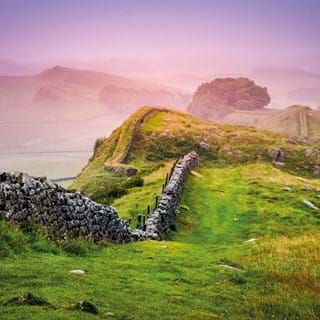
Sri Lanka
Sri Lanka is an island, located at the south tip of India, formerly called Ceylon. It’s predominantly Buddhist, but Hinduists, Muslims and Christians co-habit peacefully. Inhabited, basically since records began, there are layers of temples architecture from throughout the ages, with many ancient temples still being used today. Despite the legacy of a 25-year civil war, Sri Lanka is a jewel of a place to visit. It has an intricate history built upon its precious stones.
Sri Lankan aboriginal inhabitants, the Veddas, are thought to have inhabited the island since pre-literate times, and still make up a very small population of the island. There are ancient ruins and golden monasteries in caves to explore. The island has been colonised various time, but western empire building from the 16th century onwards led to them be colonised by the Dutch, Portuguese and the British (in that order), each of whom left a cultural legacy behind them.
What’s known as the cultural triangle is formed by Anuradhapura, Polonnaruwa, Sigiriya and Kandy, and many of the ancient ruins of Sri Lanka are located within their boundaries. You can find ancient civilisations in forests, temples perched on rock formations or within cave systems, Portuguese fortifications, rainforests, and even tropical beaches to provide an incredible backdrop to it all.
Upcoming Departures
Visa:
UK: Visa required. For up-to-date information and advice on visas, check with the Sri Lankan High Commission in the UK.
USA: Yes, you'll need a visa. U.S. citizens intending to visit Sri Lanka for purposes of tourism or transit require an approval notice from Sri Lanka’s Electronic Travel Authorization System, an onward/return ticket, and proof of sufficient funds. The Electronic Travel Authorization System is available online or at the port of entry. Visitors are strongly urged to use the online system to avoid lengthy delays at the port of entry. The online application, fees, and other relevant information are available here. This travel authorisation allows entry for up 30 days.
Currency:
Sri Lankan rupee.
Packing advice:
Away from the beaches and cities, it is advisable to dress modestly, which means longer skirts or shorts that cover the knees and tops that cover the shoulders. To visit temples, both men and women are expected to cover their shoulders, arms and legs. Shoes will often need to be removed as well (although socks can often be left on), as will hats.
Cultural differences:
Unfortunately, same-sex relationships are still illegal in Sri Lanka, so LGBTQ+ travellers should be aware of this.
Taking photographs can be problematic as some sites will require a permit to photograph, which can be bought at the entrance offices. Unfortunately, signs for guiding whether or not photography is allowed are somewhat unreliable so if in doubt it’s best to avoid getting your camera out.
If a building is deemed sensitive, such as an official building or of military usage, then do not take photos, especially if there are guards present. You can be arrested or fined for taking photographs in these areas.
Don’t pose in front or to the side of a statue of Buddha, as turning you back on his likeness purposefully is felt to be very disrespectful. Ensure you ask people before you take pictures of them – most won’t mind and some might charge, but it is rude not to ask.
Displaying affection in public spaces is frowned upon. This is felt to be something private and to be kept as such. Westerners will be excused holding hands, but try to avoid hugging or kissing in public to avoid embarrassing those around you. The left hand in Sri Lanka is traditionally for washing after using the toilet, so is seen as tainted. If you are eating with your hands, which is the traditional way of eating (although if you ask in a restaurant, they will supply utensils), remember to use the right hand only. Cover any tattoos you may have depicting Buddha, as these have caused offence in the past.
Language:
Sinhala and Tamil (English is also a recognised language).
Tipping:
Tipping in Sri Lanka is customary and part of the way of life. If you visit, you should expect to tip. In restaurants and bars, check for a service charge and if one is not included already then aim to tip around 10%. Even if there is a service charge, it is still customary to round up the bill.
Andante Travels will take care of gratuities to restaurant staff, local guides and drivers.
 US
US
 GB
GB



